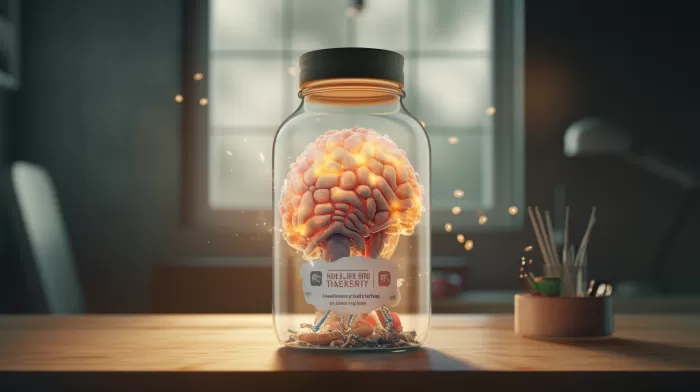It has become common knowledge that the overuse of antibiotics is creating a potentially catastrophic public health situation. According to a new report, by the year 2050, antibiotic-resistant superbugs could wipe out one in three people. If you’re constantly being prescribed antibiotics, you put yourself at risk for dangerous and life-threatening infections like Clostridium difficile, an infectious bacteria that can release poisonous spores throughout the body, leaving you prone to relapse, and Candida albicans, a fungal infection with chronic, long-term consequences. You also increase your risk for diabetes and obesity.
Recent studies have highlighted an additional reason to keep your antibiotic intake to a minimum. The journal Cell Reports published a study indicating that antibiotics can halt the development of new brain cells in the hippocampus. This can lead to a shrunken brain. The hippocampus plays an essential role in memory, and it’s also one of the first brain areas to shrink in Alzheimer’s patients. A decline in brain cells in this region could lead to memory loss and a decrease in your cognitive abilities.
The Effect of Antibiotics on Your Gut and Brain
Researchers tested the effect of antibiotics on brain cells by giving mice enough antibiotics to kill almost all of the microbes present in their gut. Then, they made these mice perform memory tests. The results were telling: the mice that had taken antibiotics performed much worse on memory tests than those that hadn’t. The antibiotic-treated mice also exhibited a loss of new brain cells in their hippocampus and had lower levels of white blood cells.
These findings reveal that your gut microbiome is extremely crucial to the health of your entire body—more so than previously believed. Recent discoveries have demonstrated that 70-80% of your immune system protection comes from your gut. Overusing antibiotics can wear down the immune system and leave you vulnerable to infections.
To preserve your brain cells, try to avoid taking antibiotics for minor infections that your body may be able to fight off naturally.
Natural Alternatives to Antibiotics
Instead of resorting to antibiotics to battle bacteria, consider exploring safer, effective natural antibiotic alternatives. Oregano oil, cayenne pepper, grapefruit seed extract, garlic, ginger, olive leaf extract, turmeric, Echinacea, honey, and pau d’Arco are just several potent natural remedies available to you.
If there are circumstances when antibiotics are absolutely necessary, researchers suggest two methods for mitigating the damage: exercise and probiotics. Exercise can encourage your brain to produce new brain cells, while probiotics help replenish the good bacteria in your gut, keeping your immune system thriving.
Protecting Your Gut and Brain Health
The key takeaway of these studies is that a healthy gut plays an essential role in the overall health of your body, including the proper functioning of your brain cells. Ensuring that you maintain a healthy gut will go a long way in promoting not only your physical health but your mental and cognitive well-being.
To achieve this, consider integrating more natural, immune-boosting methods into your life. For instance, include a diet rich in whole foods and avoid processed and sugary foods. Additionally, consume more fermented foods, which are excellent sources of probiotics that help maintain a healthy gut.
Reduce your dependence on regular antibiotics prescriptions, and instead opt for natural alternatives wherever possible. In doing so, you can significantly lower your risk of health issues while simultaneously helping to preserve your cognitive abilities and maintain a healthy gut for years to come.



